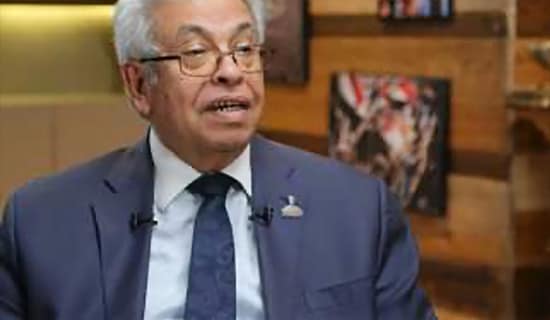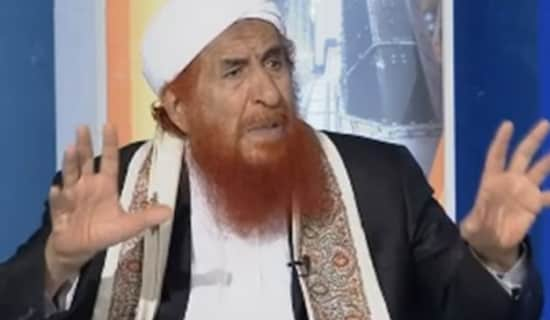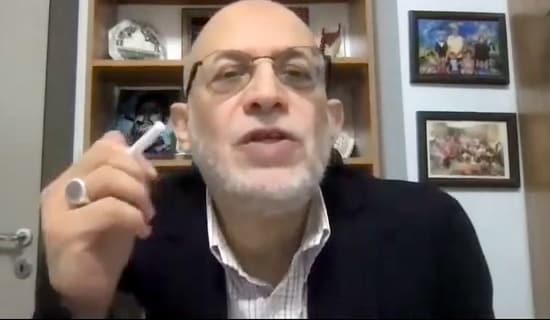On June 16, 2010, a leading Pakistani daily revealed that the Pakistani military's Inter-Services Intelligence (ISI) is mediating between the Afghan government and the Haqqani Network, a key militant group that is part of the Taliban in Afghanistan.[1] The Dawn newspaper quoted an unidentified "senior security official" in Pakistan as saying that "preliminary contacts" have been established with Sirajuddin Haqqani and other leaders of his group through intermediaries in a bid to engineer a rapprochement with the Karzai administration. According to the report, "[a]lthough the future of the initiative is unclear at the moment, the initial signs are encouraging because the leadership of the militant group appears to be willing (to talk)."
The Haqqani Network is led by Jalaluddin Haqqani and his son Sirajuddin Haqqani, who have their bases in Pakistan's North Waziristan tribal district and have been supported by the ISI.
The Taliban have not commented on the report that the Haqqani Network's leaders could consider talks. In fact, the Islamic Emirate of Afghanistan, the Taliban's own shadow government, has rejected any possibility of peace talks with the Karzai government under the framework of the Afghan constitution. However, the latest report about secret talks between the Afghan government and the Haqqani Network could be the Pakistani military's attempt to gain a foothold in Kabul by allowing the Haqqanis to have a say in Afghanistan.
The following two editorials, the first in the Pakistani newspaper Dawn and the second in the Dari-language newspaper Roznama Arman-e-Milli, examine the issue of the secret talks with the Haqqani group. The Dawn editorial, published June 17, 2010 and titled "Haqqani Talks?" stresses that the Pakistani government should first try to secure the Pakistani tribal areas before attempting to gain a say in the internal affairs of Afghanistan; the editorial in Afghan daily Roznama Arman-e-Milli, published June 20 and titled "Why Secret Negotiations with the Haqqani Terrorist Group?" asks why the Karzai government is entering into secret talks with a murderous group like the Haqqanis.
Dawn: "It Seems Unlikely that the Haqqani Network will Engage in Any Manner of Talks, Even with an Afghan Such As Hamid Karzai, Without the Blessing of Taliban Leader Mullah Omar"
"A security official has claimed that 'preliminary contacts have been established with Sirajuddin Haqqani and other leaders of his group [the Haqqani Network] through intermediaries in a bid to engineer a rapprochement with the Karzai administration.' Could this be true? There are several reasons to suggest that it is premature at best, or perhaps an attempt by Pakistani officials to counter the recent, negative comments emanating from certain Afghan quarters. Some context here is essential. The overarching theme in Afghanistan at the moment is confusion.
"The Americans are publicly sticking with Gen. Stanley McChrystal's plan[2] of denting the Taliban resistance before initiating any process of 'reconciliation' that will shape the post-American future of Afghanistan. However, the McChrystal plan's first phase – denting the Taliban's resistance – is by all accounts not going as the Americans hoped. Yet, in the absence of an alternative plan and the American resistance thus far to change of course, strategic confusion has set in. Some of the other players in Afghanistan are pushing to initiate the process of reconciliation with the Taliban now, while the Americans are digging in their heels. The terribly unsettling fact is that no one seems to know what direction Afghanistan is headed in.
"Enter the Pakistani official's comments about there being a 'possible roadmap for a political settlement between Kabul and the Haqqanis.' To be sure, Pakistan is eager to have a seat at the table at which the future of Afghanistan is to be determined. If that means acting as an intermediary with certain militants groups, then that too is likely to be tried. However, there are at least two problems in the context of the Haqqani group. One, and this is a problem for the Pakistan Army, the Americans have shown no interest in initiating a process of reconciliation at the moment and therefore are very unlikely to have approached Pakistan to play a role.
SUPPORT OUR WORK

"Two, it seems unlikely that the Haqqani Network will engage in any manner of talks, even with an Afghan such as Hamid Karzai, without the blessing of Taliban leader Mullah Omar. While the Haqqani Network is largely autonomous operationally in the parts of Afghanistan under its control, it continues to take its strategic cues from Mullah Omar. Any sort of 'independent' deal, then, is unlikely.
"The best course of action for Pakistan is the same as it has been for years now: secure FATA [federally administered tribal areas]. That is the paramount national security aim for Pakistan, and whatever the goings-on in Afghanistan, the Pakistan Army must not lose sight of that fact. Prematurely focusing on Afghan solutions will only extend the problems inside Pakistan."
Roznama Arman-e-Milli: "Is There Any Guarantee That the ISI Will not Try to Achieve… [Pakistan's] Biggest… Goals by Mediating Between the [Afghan] Government and the Haqqani Group?"
"The recently announced negotiation between the Afghan government and the Haqqani group, with mediation of Pakistan's spy agency ISI [Inter-Services Intelligence], is not supported by the U.S. government.
"International media has reported that the head of the Pakistan's spy agency has promised with the Afghan officials during his last month's [secret] trip to Kabul that they will make the Haqqani group ready for peace and it is said that these secret negotiations have been started.
"The Haqqani group is responsible for many bloody attacks in Afghanistan, such as attacks on the memorial ceremony of the Soviet invasion, and on the buildings of the ministry of information and culture, the [June 2-4] Peace Jirga and many more. Therefore, their hands are stained with the blood of innocent people, and this group has great support from the ISI.
"Now, it's true that the Afghan government, after the recommendation of the Peace Jirga to talk to opposition groups, is struggling deeply to negotiate with all the opposition groups, of which the Haqqani group is also on top.
"However, two points should be looked carefully:
a) Is it possible to negotiate with a group which has taken official responsibility for many bloody attacks in which many innocent people were killed – and if so, is there a hope that such negotiations would be supported by the people?
b) Is there any guarantee that the ISI will not try to achieve its [i.e. Pakistan's] biggest aims and goals by mediating between the government and the Haqqani group, in peace talks which may also undermine the interests of Afghans?
"Therefore, the Afghan parliament, civil society, committed media and Afghans must look deeply into this issue – because the Afghan government may lose many achievements in the field of human rights, women's rights, the constitution and many other values with secret talks with the Haqqani terrorist group.
"In fact, the Afghan government is trying to give more privileges to the enemies of Afghanistan just to continue its rule on this country."




